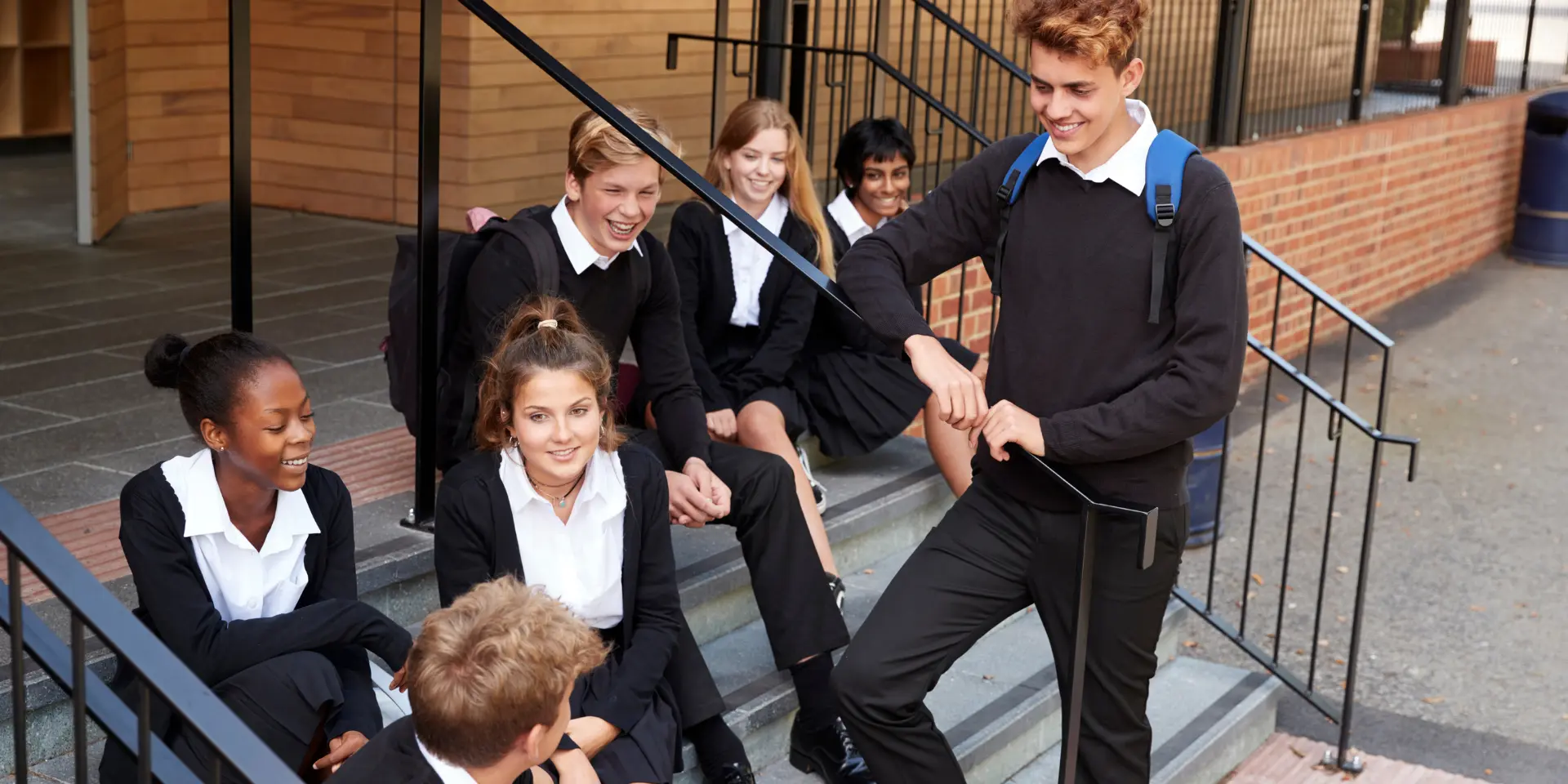Case Study
· UK · Schools & CollegesLaurence Jackson School

As a new school year starts, we are taking a look at one of the secondary schools signed up with Lexonik to see how effective our literacy programmes have been. We spoke to assistant head teacher of Laurence Jackson School, Nicola Crawford about her use of Lexonik in her school.
How was the training the staff received?
The whole staff training provided by Sarah re the mechanics of reading, morphemic analysis and syllabification was highly professional, expertly pitched and effectively delivered.
What did you think of your trainer?
Sarah's passion, combined with her extensive knowledge of literacy and leadership in schools, was evident from the moment she shared her planning for the session with me to the moment she delivered it. This transformed the session from something that would 'tick a box' to something that was inspiring and meant that all staff left with ideas to implement the next day.
What did your staff make of the session?
I asked all of our staff who attended the session to feedback at the end. All staff were able to feedback comments around the best aspect of the training. There were no negative comments about the training. All staff were able to demonstrate that they had taken something specific from the session and shared a specific and meaningful pledge of how they would take the training and 'tweak' their practice.
What does using the Lexonik programmes mean for the future?
As a senior leader, this has left me in a superb position for September. I have also been able to reflect on how we can use the training to influence and shape our pastoral care, not just our day-to-day classroom teaching.
What were the most useful aspects of training?
Clear, beneficial pedagogical strategies to use now in our teaching. Really engaging, informative training.
There is a simple, concise key to break down the way we approach vocabulary. What does it mean? How do you know? Where has your mind gone? Use what you know to find out what you don't know.
The programmes have processes that can be used in the classroom. The section about how to teach students how to uncover meaning was really helpful. The best training of the year so far! (with only a week left of the year).

What are some examples of pledges the staff have made?
- To teach spelling through syllables instead of giving students the spelling
- Use what I know to access what I don't know. Try and break down words and apply to Maths
- To use this process with PE key words
What did the pupils think of the programme?
After the first session was delivered, Nicola sat down with her students to ask their opinion of the programme.
Learners retained a lot of what they were taught. They could remember a large amount of information about vowels including how the letter Y is sometimes used as a temporary vowel. One learner said, “The baby and adult vowels and how to find them is probably what I’ll remember the most”.
They could remember what a syllable was and could break down new words they had previously not discussed. They also noted that syllabification helped them during the spelling test. “I like how we learned the syllables of the words and how many syllables were in a word. It helped me with my spelling in a way”.
They could recall etymology and the meanings of certain syllables such as the “tion” suffix and that “met” means together. This meant that they could successfully break down the word “innovation” into syllables, identify what the prefix and suffix meant and use that to identify the words definition.
They spoke about the games they liked and how the resources helped them identify different prefixes and suffixes throughout the session. “I liked how it was learning but it was fun at the same time” one student remarked. They all thought the programme would be worthwhile going forward as one student even said, “it was the best lesson I’ve had today”.
Conclusion
Both Laurence Jackson School and Nicola seem very pleased with their Lexonik training, and we are thrilled to help them roll out literacy programmes across their secondary school.
Lexonik products cover a huge range of learners and can improve reading ages, no matter the learner’s actual age.
If you’re interested in any of our literacy programmes you can check them out here or get in touch with us here.